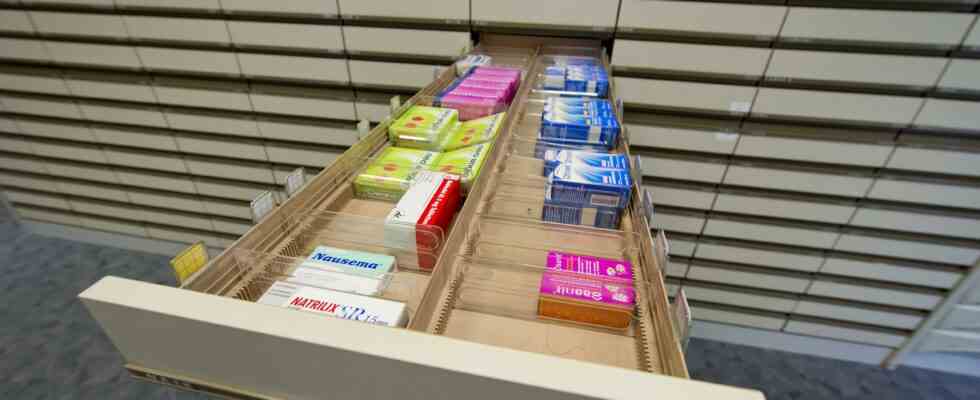Status: 12/20/2022 10:28 am
Some medicines such as fever and cough syrups are currently almost unavailable in pharmacies. Health Minister Lauterbach wants to change that: health insurance companies should pay more for such drugs.
Federal Health Minister Karl Lauterbach is planning significant changes to the price rules for children’s medicines in response to supply bottlenecks. This emerges from a key issues paper for a drug law that Lauterbach presented today.
According to Lauterbach, it is unacceptable that it is currently difficult to get fever juice for a child in Germany that is still available abroad. But he also appealed for patience: “Discounter policy has continuously worsened the supply of medicines for decades. Turning back that won’t happen overnight.”
Karl Lauterbach, SPD, Minister of Health, on the supply of medicines in Germany
Morning magazine, December 20th, 2022
Patients should not pay more
In the long term, the SPD politician wants to ensure that the price regulations for children’s medicines are relaxed, medicines from European manufacturers come into play again and stocks of the cheapest medicines are built up. Financial incentives are also intended to make medicines for adult cancer care and antibiotics more readily available.
According to the key issues paper, statutory health insurance companies should be able to pay up to 1.5 times the previous maximum amount for required medicines in the event of bottlenecks. The co-payment for the patients on the medicines should be limited.
Not every supply bottleneck of certain drugs leads to a supply bottleneck, the ministry said, “since suitable alternatives are often available”. However, these so-called generics would have a smaller share of the expenses of the statutory health insurance companies in comparison to the patented drugs.
More production in the EU
In addition to pediatric medicines such as fever and cough syrups, some cancer drugs and antibiotics are currently in short supply. One reason is that the health insurance companies have to conclude contracts with the cheapest manufacturers and the pharmacies are then only allowed to sell these medicines. Production was concentrated in low-wage countries and the number of suppliers fell.
According to the plans, manufacturers who produce cancer drugs and antibiotics in Europe should be considered again in future tenders. This should lead to production there being ramped up again, said Lauterbach im morning magazine from ARD and ZDF.
In order to prevent future bottlenecks in the supply of required medicines, the Federal Ministry of Health plans to develop criteria that will help identify problems at an early stage. The measures taken are to be evaluated by the end of 2025.
More effort for pharmacies
According to the Federal Institute for Drugs and Medical Devices, there are currently a good 330 reports of supply bottlenecks for preparations. The ministry points out that not all delivery bottlenecks also mean supply bottlenecks. So alternatives can be procured or manufactured, but this means more work for pharmacies.
Doctors fear further bottlenecks over the holidays
In addition to Corona, the flu and RS viruses in children are currently causing many diseases throughout Germany. Doctors’ representatives fear that bottlenecks in pediatric medicine will worsen over Christmas and New Year’s Eve.
“At the moment we are observing that infections with the RS virus are declining, but more and more children are now coming with the flu and other respiratory diseases,” said Jörg Dötsch, President of the German Society for Pediatric and Adolescent Medicine, to the newspapers of the Funke media group. “Due to the personnel situation on the holidays, the situation in clinics and practices will be even more tense than it is now.”
The chairman of the World Medical Association, Frank Ulrich Montgomery, said: “I assume that this acute crisis in pediatric medicine will last until February.” The number of cases of infection is expected to continue to rise in the coming weeks, not only among children but also among adults. “At the same time, the children’s hospitals come under additional pressure over the holidays due to the reduced duty rosters – especially when many pediatricians in private practice close their practices during this time or reduce the office hours.”

